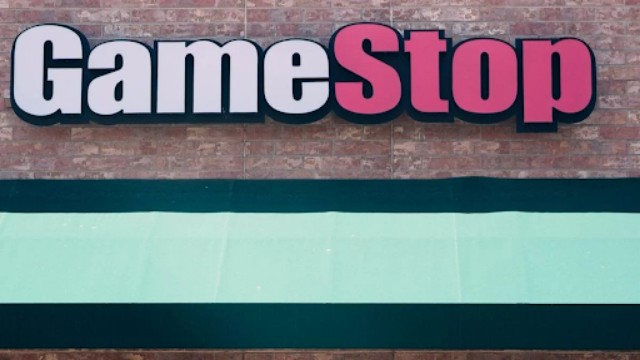
A GameStop store sign is seen above the entrance in Lone Tree, Colorado, on June 11, 2024. (AP Photo/David Zalubowski, File)
GameStop’s stock took a nosedive on Thursday after the company announced a controversial plan to sell debt and use the funds to purchase Bitcoin. The move, which caught Wall Street’s attention, sent shares down 22.1%, a stark contrast to the 11.7% gain it saw on Tuesday.
The video game retailer revealed a $1.3 billion private debt offering, aiming to acquire Bitcoin as a reserve asset. However, analysts and investors have raised concerns about the strategy, questioning its logic and potential risks.
High-Risk Move Raises Red Flags
Wedbush analyst Michael Pachter criticized the plan, stating that investors paying twice the company’s cash value for Bitcoin exposure doesn’t make much sense. He noted that those interested in Bitcoin could invest directly in the cryptocurrency or a Bitcoin ETF rather than relying on GameStop’s speculative move.
GameStop currently holds about $4.8 billion in cash, and the conversion would raise it to $6.1 billion. Despite this, the company's valuation stands at approximately $12.7 billion, making the debt sale a significant premium over its worth.
Another issue is that a large portion of GameStop’s investors may not qualify for the debt offering due to certain investor restrictions, further complicating the strategy.
The Meme Stock Phenomenon and Roaring Kitty’s Influence
GameStop became a symbol of the "meme stock" craze in 2021 when retail investors drove its price above $120. This movement was largely fueled by Keith Gill, widely known as "Roaring Kitty," whose social media presence reinvigorated interest in the stock.
However, GameStop’s stock has struggled since then, especially after Gill’s return to the online scene in 2024. While the stock saw brief surges, the overall trend has been a decline, raising questions about the company’s long-term sustainability.
Mixed Reactions from Analysts
Despite the skepticism surrounding the Bitcoin move, Wedbush analysts acknowledged GameStop’s surprising ability to generate an operating profit in the fourth quarter of 2024. They believe the company has a chance to break even in the foreseeable future, though they remain cautious about its strategic direction.
Pachter also pointed out that GameStop has repeatedly benefited from speculative investors willing to overpay for its shares. He noted that while the company lacks a clear long-term strategy, it has managed to capitalize on the enthusiasm of retail traders.















